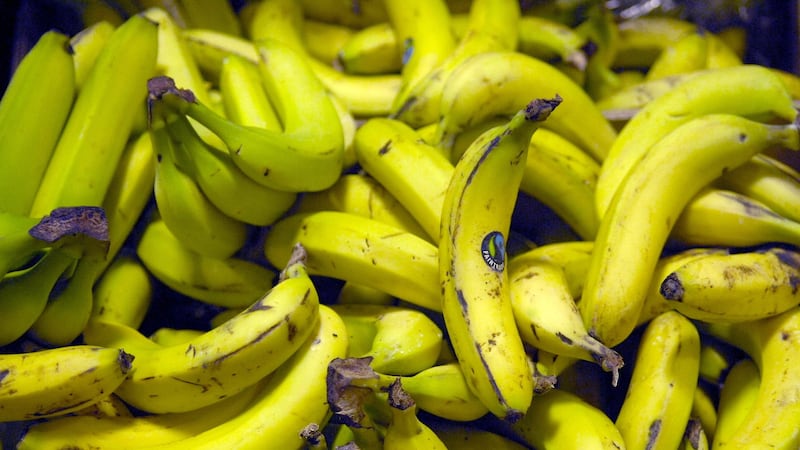Last weekend I was lucky enough to sit in the Waterfront Hall and witness The Bothy Band perform their first gig on Irish soil in over 40 years. It was an emotionally charged night and there was a very special energy in the sold out crowd.
The Bothy Band were one of the bands who took indigenous Irish music by the scruff of the neck, added contemporary sounds and made it relevant to a younger audience. They made traditional music sexy, and their sound has influenced generations since.
As the Belfast Tradfest winter weekend wrapped, the RTÉ Radio 1 Folk Awards picked up the mantel, celebrating the newly released music of the past year.
We are experiencing another resurgence and revival in folk music. There is a distinct confidence in this community who really respect the roots of the tradition and who are using their voice and platform for advocacy and to give voice to the voiceless.
Unsurprisingly, solidarity with the Palestinian people was articulated in many of the acceptance speeches and performances at this year’s Folk Awards.
That’s the thing about folk music, particularly the songs – gifted writers have the ability to write issue based anthems, speak to our conscience, really connect and make us ask questions of ourselves. We are currently witnessing a wave of new voices who, in my opinion, display the courage of their convictions and self assuredly represent them in unprecedented measure.
But with this popularity and confidence, there sadly comes an undercurrent of misogyny and sexually abusive behaviour that is normalised in traditional music circles. The same is true of the scene in Scotland.
Most disturbing is the acknowledgement that ‘people in the industry who attend awards shows and parties do so sitting beside sexual abusers who remain protected by the system and by colleagues’
In January, at the height of the popular Celtic Connections festival, which attracts huge crowds to the city of Glasgow each year, a well known woman in Scottish music posted on socials advising young women that there are many ‘aunties’ around should they need to call on an ‘auntie’ for help, advice or support at any time, if they found themselves in difficulty. This message was posted from a place of kindness, but isn’t it sad that this woman felt the need to post something like this at all?
Her comment was then compounded by another singer who claimed that the identities of performers widely regarded as predatory are ‘open secrets’ in the industry. The musicians’ union has urged women to come forward and report offenders in confidence.
- Patricia O'Lynn: The first step towards equality is calling out all misogynists - whatever their identityOpens in new window
- Gráinne McElwain: Extreme views get the clicks but sometimes silence is more preciousOpens in new window
- Anne Hailes: The Laurence Fox scandal is a reminder of the need to call out misogyny and the mistreatment of women in mediaOpens in new window
There is a culture in traditional music, in the wider music industry which makes it a negative space for women. The ‘lad’ culture is prevalent – ‘catch yourself on, I’m only having a laugh,’ when someone’s hand goes up a skirt or touches an intimate part of the body. Festival line-ups are usually far from gender equal.
The findings of the landmark Misogyny in Music report published in January by the Women and Equalities Committee of the House of Commons should spark action.
The report highlights that women working within the wider music industry face “limitations in opportunity, a lack of support, gender discrimination and sexual harassment and assault as well as the persistent issue of unequal pay in a sector dominated by self-employment and gendered power imbalances”.
Most disturbing is the acknowledgement that “people in the industry who attend awards shows and parties do so sitting beside sexual abusers who remain protected by the system and by colleagues”.
📗 Our report on misogyny in music has been published.
— Women & Equalities Committee (@Commonswomequ) January 30, 2024
🎵 The report looks at what needs to be done to tackle misogynist attitudes in the music industry.
Read out recommendations 👇https://t.co/8slIimRPTy pic.twitter.com/kBdQAQo0dS
There is a culture of fear to ‘say nothing’ because you might risk your career, your chances to progress if you report an incident. Chances are you will be gaslit and vilified - a terrifying prospect if self-employed or depending on the same people for gigs, for income. This is particularly ironic in the case of folk music which draws so much strength from the power of the voice.
Extensive academic studies have been done on the issue by Dr Úna Monaghan and Dr Joanne Cusack, whose PhD will soon be published as a book.
The movements Fair Plé and Mise Fosta (Irish for ‘Me Too’) made moves to address inequality, misogyny and sexual abuse in traditional music. Their websites provide advice to women who have been victims.
Thanks to their efforts, many women found the strength to articulate and report what has happened to them, and some new processes have been put in place to protect female artists in their workplace. Despite these efforts however, many predators have never been properly held to account because of lack of evidence or the alleged attack having happened in a different jurisdiction.
Sadly, there are cycles of activism because of the lack of state/government action, activists run out of steam. The problem hasn’t and won’t go away until dealt with properly but I wonder if anyone is listening.









